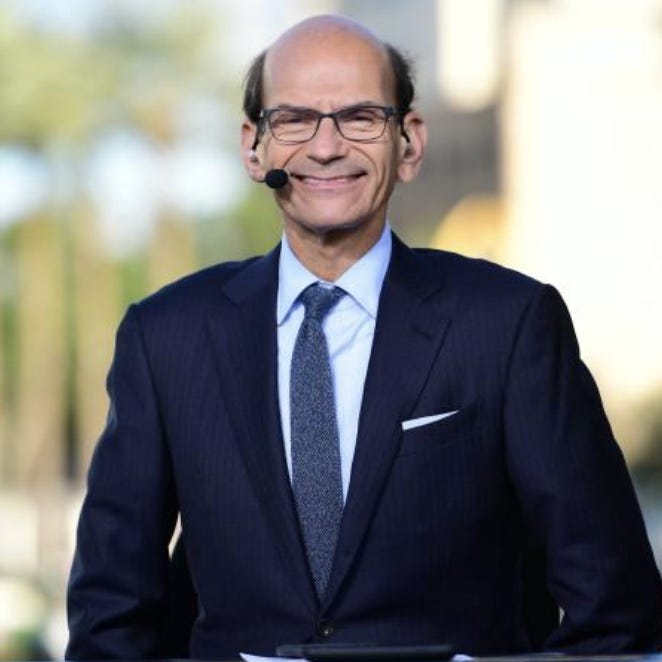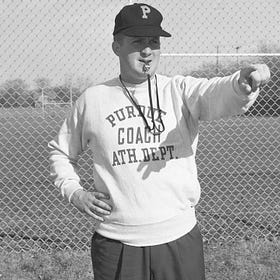Duke Is No Longer The Bad Guy
Once college basketball's most hated program, fans should back the Duke Blue Devils in 2025.
Through my formative years, each major team sport had one organization that separated itself as the game’s most detestable.
Major League Baseball had the Yankees; the NFL, the Cowboys; the NBA, the Lakers; and in the NHL, the Detroit Red Wings.
In college basketball, it was the Duke Blue Devils who filled that role.
Each of these teams shared a common quality: all won at championship levels. But winning alone isn’t enough reason for an organization to transcend envy into generational contempt.
And for plenty of fans, their disdain for these teams is indeed generational. Ahead of its Final Four matchup with Houston, for example, I was alerted to a column asserting that Duke remains the least palatable national championship option for basketball fans without allegiance.
But as a longtime Blue Devil hater myself, let me explain why continuing to hold onto old grudges with Duke in today’s college basketball landscape is as egregious as the Laettner Stomp going unpenalized.
Certain readerships may be exempt from the following. Are you a fan of North Carolina? Or possibly a supporter of another ACC program?
OK, so this may not apply to you — in theory.
Fans of other teams should dislike the perennial powerhouse in their own conference. But sometime in the 2000s, as chants of “S-E-C!” broke out during college football games across the nation and became a rallying cry for a sport with a home to persecution complexes, things changed.
College football had an assortment of programs worthy of Final Boss villain status for years before the late 2000s: Miami, USC, Notre Dame, to name a few.
SEC dominance, set to a soundtrack of equal parts arrogance and kvetching, created a bad-guy consortium — a Legion of Doom for football villainy, if you will — right down to having a bad AI-generated rendering of Lex Luthor.
Even as SEC football metastasized into the most loathsome entity on the gridiron, Duke maintained the mantle on the hardwood into the 2010s with Grayson Allen’s penchant for going after opponents’ ankles.
Plus, Mike Krzyzewski still manned the Duke sideline.
Coach K made an indelible mark on basketball, and in ways beyond just his success, left an impact comparable to that of John Wooden. It’s impossible not to respect Coach K — but that doesn’t mean his presence felt any less like the uptight picture of your average Congressional candidate pre-present-day dystopia.
For as much flak as Jon Scheyer caught as a Duke player, Jon Scheyer the coach comes off relaxed. Affable. Relatable, even.
Likewise, even before Coach K’s 2022 retirement, Duke moved away from the style of player who came to symbolize much of what outsiders hated about the Blue Devils. Christian Laettner, Steve Wojciechowski, and Grayson Allen are out; Paolo Banchero and Cooper Flagg came in.
For me, Flagg’s presence with the 2025 Blue Devils is very much comparable to Aaron Judge with the New York Yankees.
I once harbored a dislike of the Yankees on par with my distaste for Duke that dissipated in recent years, and for similar reasons. While I would never insult Coach K. by drawing any sort of parallel between he and George Steinbrenner, the Yankees’ change in leadership certainly helped soften on my position on the whole organization.
The Press Break Book Club: George Steinbrenner, Watergate Investigations and Big Ten Football
For those reading this month’s inaugural selection for The Press Break Book Club — Jeff Katz’s Split Season 1981 — perhaps this tidbit regarding one of Billy Martin’s many exits from the New York Yankees within the first few first pages raised your eyebrows as it did mine.
And whereas the Yankees of the 2000s included Roger Clemens and Alex Rodriguez, Judge is the face of the franchise in 2025. Unless you’re a Red Sox fan, Judge seems impossible to dislike.
Flagg is similarly entertaining and engaging. He makes basketball look effortless while still giving what is clearly maximum effort. His jump to the NBA at the conclusion of the Final Four may be inevitable, but Flagg will leave Duke having made an impression on college basketball as a true star in ways one-and-done players are rarely able to.
Flagg is also at the heart of a true basketball school, being the best hope to prevent the monopolization of hoops in the same way that football’s power brokers are positioning for college football.
Those chants of "S-E-C" that permeated as Southeastern Conference football demanded more Playoff revenue — thus beginning the radical reshaping of all college sports — they echo ahead of the Final Four.
SEC commissioner Greg Sankey began before Selection Sunday with the same kind of political jockeying that helped poison both the BCS and the four-team College Football Playoff.
And considering the caliber of political pundit from whom Sankey takes cues, you know the commissioner’s politicking is especially rancid.
Through SEC affiliation and all that entails alone, both Auburn and Florida are more worthy of the impartial fans’ boos this Final Four weekend than Duke.
Duke is something of a dying breed as an unapologetically committed Basketball School, representing the storied history of a conference that was instrumental in growing the game to the levels of popularity it enjoys today.
That popularity vis a vis March Madness is yet another piece of sports that SEC Manifest Destiny seems hellbent on usurping.
It’s a weird time we live in. Yankees players have facial hair, the Cowboys are mired in 30 years of futility, the Red Wings are approaching a decade of finishing fifth or lower in the Atlantic, and Duke basketball doesn’t pose an existential threat to the game.
Acknowledging change can be hard. I take some solace knowing I can still hate the Lakers.









On point, Kyle! Good read.